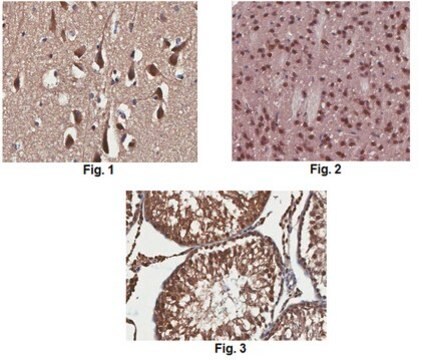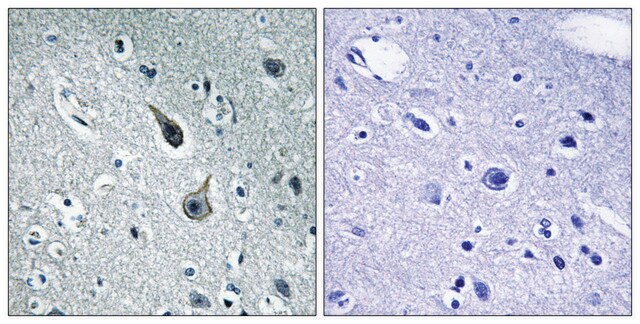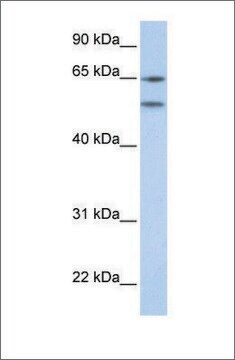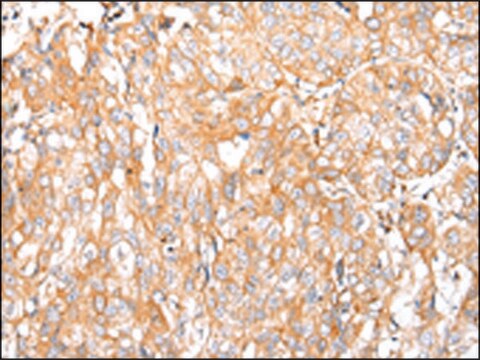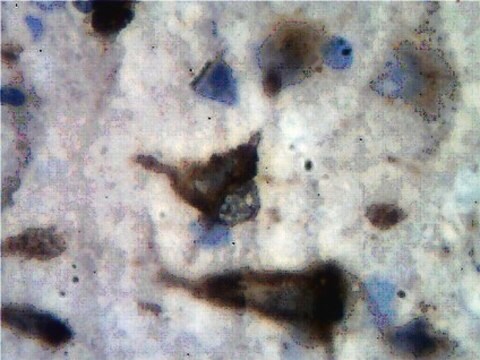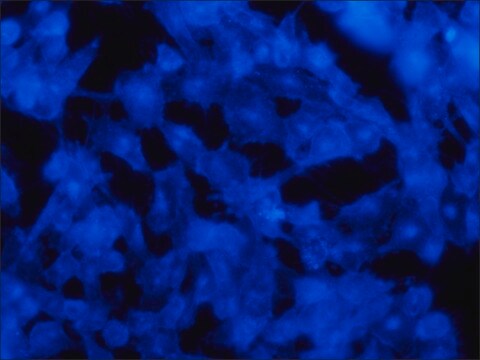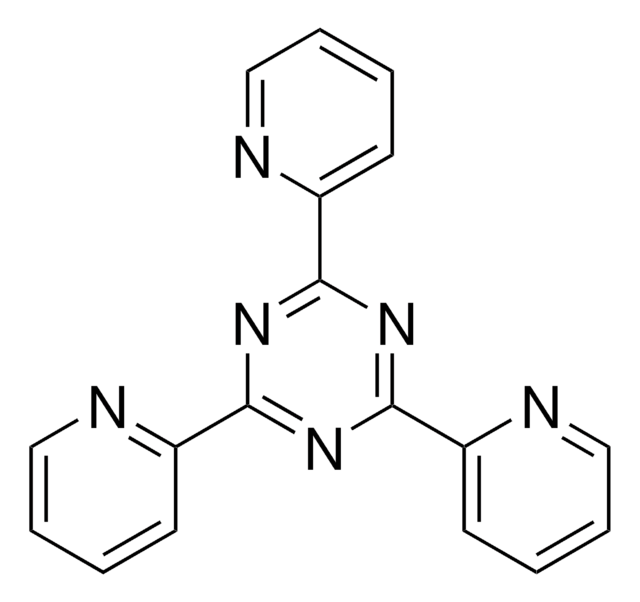PC176
Anti-Serotonin 2A (5-HT2A) Receptor (22-41) Rabbit pAb
liquid, Calbiochem®
About This Item
Produits recommandés
Source biologique
rabbit
Niveau de qualité
Forme d'anticorps
affinity isolated antibody
Type de produit anticorps
primary antibodies
Clone
polyclonal
Forme
liquid
Contient
≤0.1% sodium azide as preservative
Espèces réactives
mouse, sheep, rat
Fabricant/nom de marque
Calbiochem®
Conditions de stockage
OK to freeze
avoid repeated freeze/thaw cycles
Conditions d'expédition
wet ice
Température de stockage
−20°C
Modification post-traductionnelle de la cible
unmodified
Informations sur le gène
rat ... Htr2A(29595)
Description générale
Immunogène
Application
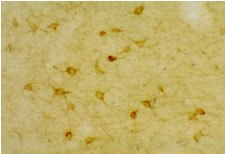
Frozen Sections (1:300-1:500)
Immunoblotting (1:500-1:1000)
Free Floating Sections (see application references)
Paraffin Sections (see application references; heat pre-treatment required)
Avertissement
Forme physique
Reconstitution
Autres remarques
Teitler, M. and Herrick-Davis, K. 1994. Crit. Rev. Neurobiol.8, 175.
Informations légales
Vous ne trouvez pas le bon produit ?
Essayez notre Outil de sélection de produits.
Code de la classe de stockage
12 - Non Combustible Liquids
Classe de danger pour l'eau (WGK)
WGK 2
Point d'éclair (°F)
Not applicable
Point d'éclair (°C)
Not applicable
Certificats d'analyse (COA)
Recherchez un Certificats d'analyse (COA) en saisissant le numéro de lot du produit. Les numéros de lot figurent sur l'étiquette du produit après les mots "Lot" ou "Batch".
Déjà en possession de ce produit ?
Retrouvez la documentation relative aux produits que vous avez récemment achetés dans la Bibliothèque de documents.
Notre équipe de scientifiques dispose d'une expérience dans tous les secteurs de la recherche, notamment en sciences de la vie, science des matériaux, synthèse chimique, chromatographie, analyse et dans de nombreux autres domaines..
Contacter notre Service technique